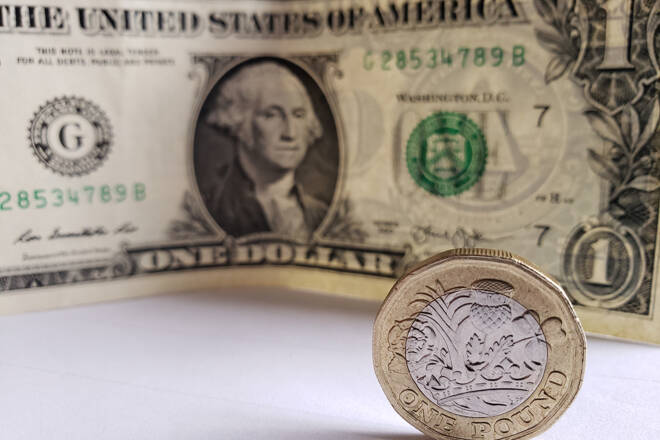Advertisement
Advertisement
GBP/USD Price Forecast: US Inflation to Test Pound Resilience
By:
Today, the GBP/USD found early support. We could see a reversal, however, should the US Core PCE Price Index figures increase further in May.
For the Pound, it was a relatively quiet end to the week on the UK economic calendar. Finalized UK GDP numbers for Q1 provided early direction to the GBP/USD pair.
According to the Office for National Statistics, the economy expanded by 8.7% year-on-year, in line with prelim and forecast.
- In the first quarter, the UK economy grew by 0.8%, also in line with prelim and forecast.
- The main contributors to growth were information & communication and transport & storage.
- Household final consumption expenditure grew by 0.6%, with gross fixed capital formation up 3.8%.
- The economy had expanded by 1.3% in the previous quarter.
The unrevised numbers delivered GBP/USD support ahead of the European open.
Today’s First quarter GDP numbers for the UK followed monetary policy commentary from Wednesday.
On Wednesday, BoE monetary policy divergence with the Fed weighed on the Pound. Bank of England Governor Bailey spoke at the ECB Forum on Central Banking, saying that the BoE may not need to “forcefully get inflation under control,” adding that cracks were appearing in the UK economy.
Today, there are no Bank of England Monetary Policy Committee members due to speak ahead of a busy BoE calendar in early July.
Later in the day, however, US economic data will draw greater attention and influence market risk sentiment and the pair.
GBP/USD Price Action
At the time of writing, the Pound was up 0.32% to $1.21551.
This morning, the Pound fell to an early low of $1.21075 before striking a high of $1.21645.
The Pound left the Major Support and Resistance Levels untested early on.
Technical Indicators
The Pound will need to avoid the $1.2145 pivot to target the First Major Resistance Level (R1) at $1.2185 and Wednesday’s high of $1.22127.
A pickup in market risk appetite would support a breakout from the morning high of $1.21645.
An extended rally would test the Second Major Resistance Level (R2) at $1.2252. The Third Major Resistance Level (R3) sits at $1.2359.
A fall through the pivot would bring the First Major Support Level (S1) at $1.2077 into play.
Barring an extended sell-off, the Pound should steer clear of sub-$1.20. The Second Major Support Level (S2) at $1.2038 should limit the downside. The Third Major Support Level (S3) sits at $1.1931.
Looking at the EMAs and the 4-hourly candlestick chart (below), it is a bearish signal.
At the time of writing, the Pound sat below 50-day EMA, currently at $1.22275. The 50-day EMA fell back from the 100-day EMA. The 100-day EMA eased back from the 200-day EMA: GBP/USD negative.
A move through the 50-day EMA would support a run at R2.
However, following the Wednesday GBP/USD fall through the 50-day EMA, the Pound will need to steer clear of sub-$1.21 to avoid extending the losing streak to four sessions.
The US Session
It is a busy US economic calendar, with personal spending, the weekly jobless claims, and inflation the main stats of the day.
Assuming no sharp spike in jobless claims, the US Core PCE Price Index and personal spending numbers will influence the GBP/USD pair.
The downward trend in consumer confidence could continue should inflationary pressures build further. For the US economy, weak personal spending numbers could also reduce the chances of the Fed achieving a soft landing.
The combination would likely weigh on riskier assets and the GBP/USD pair, with the Fed seemingly unwilling to change tact should economic conditions weaken.
About the Author
Bob Masonauthor
With over 28 years of experience in the financial industry, Bob has worked with various global rating agencies and multinational banks. Currently he is covering currencies, commodities, alternative asset classes and global equities, focusing mostly on European and Asian markets.
Advertisement
